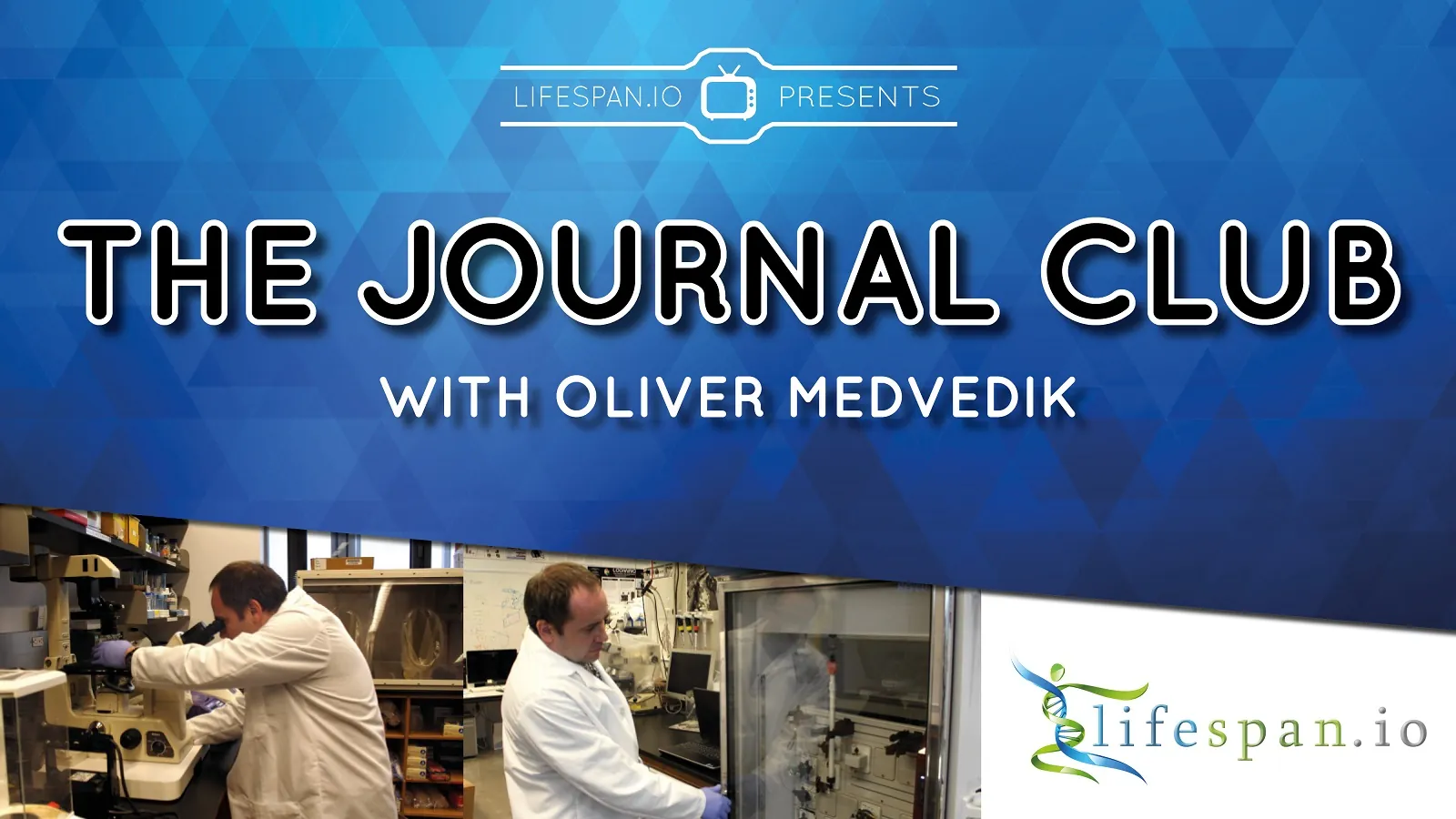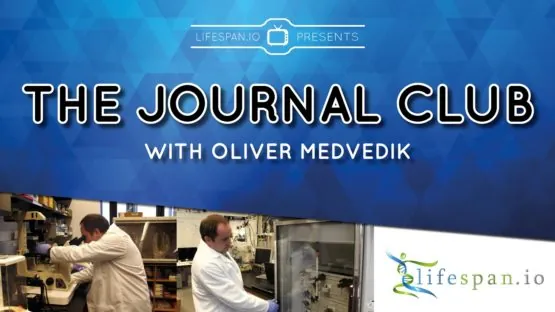On Tuesday, March 29th, the Journal Club will be livestreamed to our Facebook page at 12:00 Eastern. Dr. Oliver Medvedik will be taking a look at a new paper showing that partial cellular reprogramming to reverse cellular aging is possible in normally aged mice. Previous studies demonstrated that the approach was possible in mice engineered to rapidly age, but one critique held that these mice do not age normally and that does not reflect actual aging.
This study shows that Yamanaka reprogramming factors can be used in mice that have aged normally and that the positive results are similar. This is another important step forward in potentially bringing partial cellular reprogramming to reverse cellular aging to humans in the next decade or two.
Abstract
Partial reprogramming by expression of reprogramming factors (Oct4, Sox2, Klf4 and c-Myc) for short periods of time restores a youthful epigenetic signature to aging cells and extends the life span of a premature aging mouse model. However, the effects of longer-term partial reprogramming in physiologically aging wild-type mice are unknown. Here, we performed various long-term partial reprogramming regimens, including different onset timings, during physiological aging. Long-term partial reprogramming lead to rejuvenating effects in different tissues, such as the kidney and skin, and at the organismal level; duration of the treatment determined the extent of the beneficial effects. The rejuvenating effects were associated with a reversion of the epigenetic clock and metabolic and transcriptomic changes, including reduced expression of genes involved in the inflammation, senescence and stress response pathways. Overall, our observations indicate that partial reprogramming protocols can be designed to be safe and effective in preventing age-related physiological changes. We further conclude that longer-term partial reprogramming regimens are more effective in delaying aging phenotypes than short-term reprogramming.
To get you up to speed, we have recently reported on how long-term cellular reprogramming causes rejuvenation in mice and now, the Journal Club will take a deep dive into the data behind this story.
Literature
Browder, K. C., Reddy, P., Yamamoto, M., Haghani, A., Guillen, I. G., Sahu, S., … & Izpisua Belmonte, J. C. (2022). In vivo partial reprogramming alters age-associated molecular changes during physiological aging in mice. Nature Aging, 1-11.


